Abstract
The ampicillin levels in sputum, serum, and saliva from 40 patients receiving a dose of 250 mg., 26 patients receiving a dose of 500 mg., and 11 patients receiving a dose of 1 g. were estimated. The ampicillin was given orally four times daily.
The 1-2 hour and 2-3 hour sputum levels were similar in individual patients. There was no difference in the range or mean sputum or saliva levels between specimens from patients receiving 250 mg. and 500 mg., but the levels were significantly higher after the 1 g. dose. The mean serum level showed a small increase after 500 mg. ampicillin as compared with the 250 mg. dose and a big increase after the 1 g. dose: only the latter difference was significant. The sputum levels were approximately 30 to 40 times lower than the corresponding serum levels. There was considerable scatter in the sputum level for any level of ampicillin in the serum: in only two of the 1-2 hour sputum specimens was there no detectable ampicillin.
There was no correlation between the sputum levels and either the body weight or the dose in milligrams per kilogram. There was no evidence that corticosteroids or diuretics affected the sputum level.
It was not possible to demonstrate any relationship between the purulence of the sputum and the level of ampicillin after doses of 250 mg. or 500 mg., but higher levels were found in the more purulent specimens after 1 g. doses.
Full text
PDF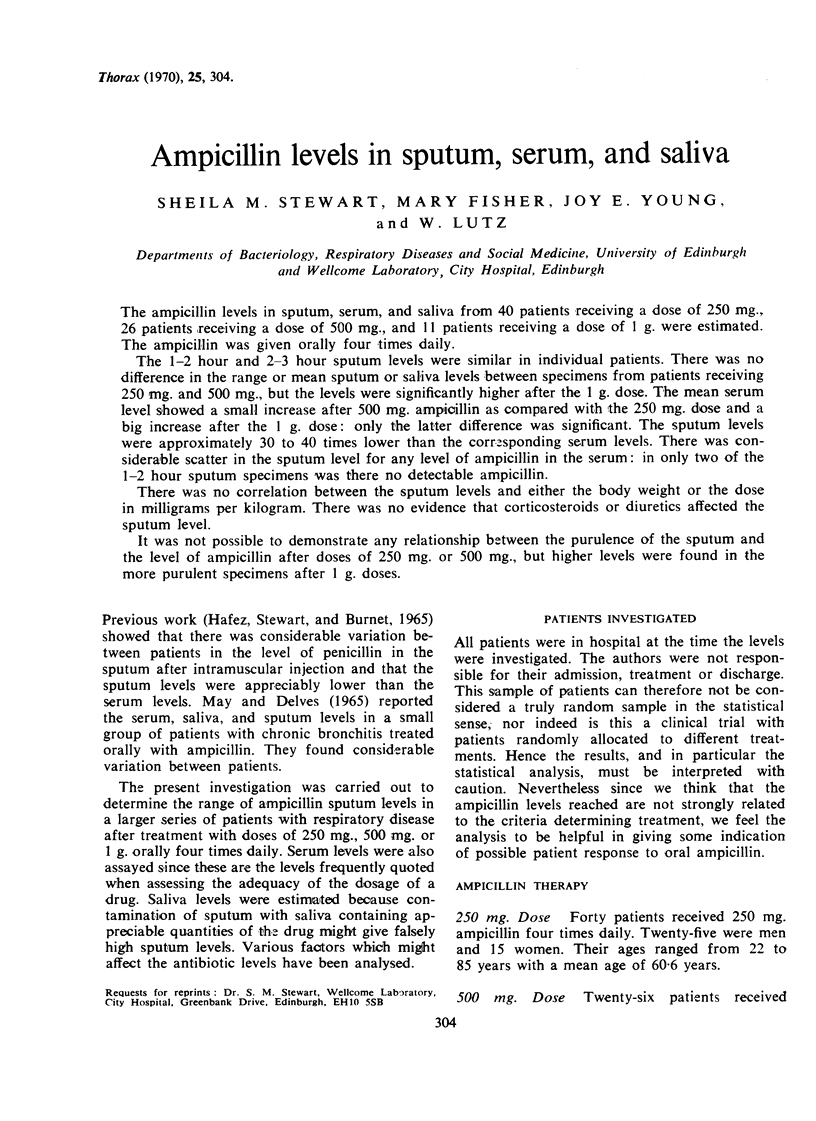
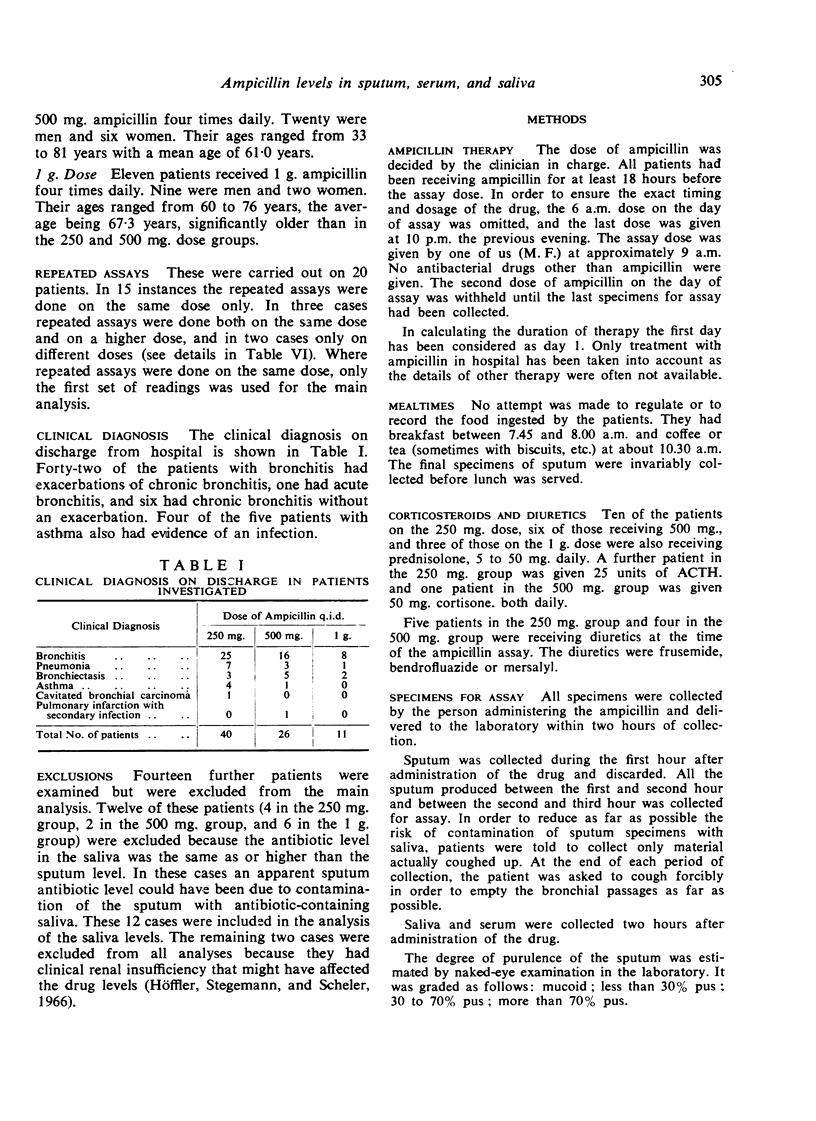
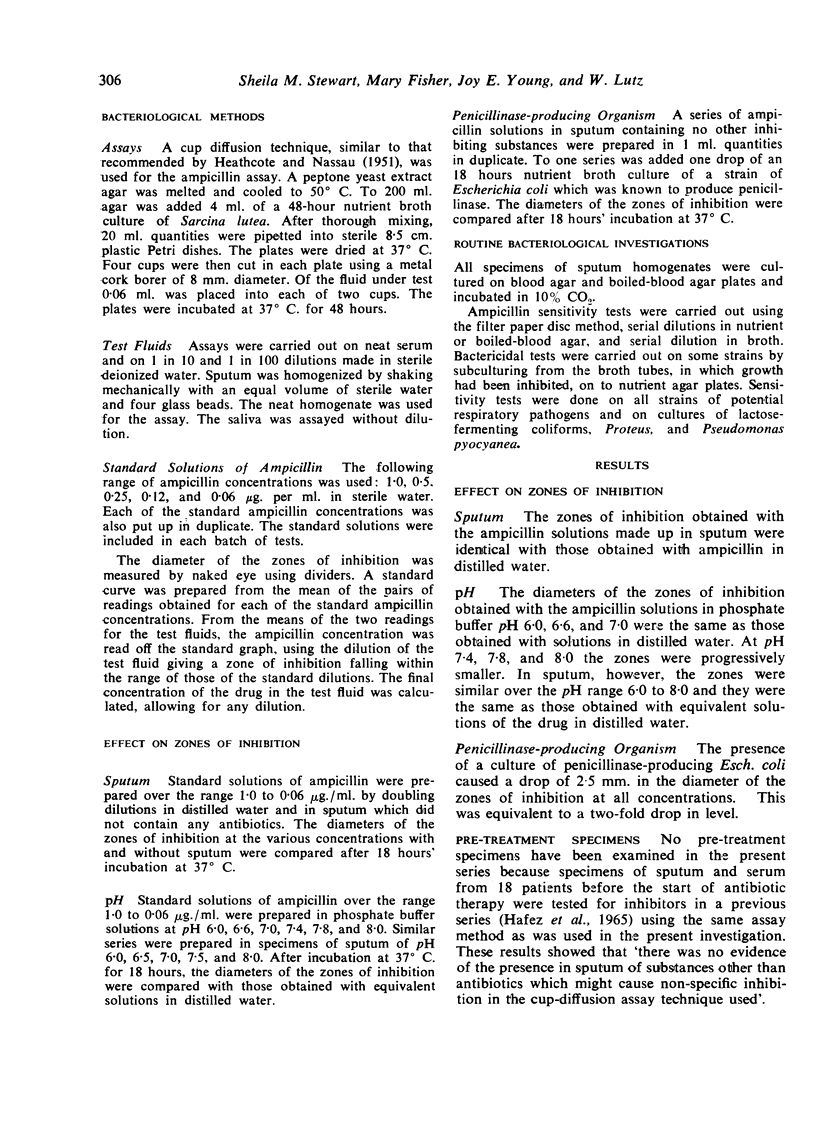
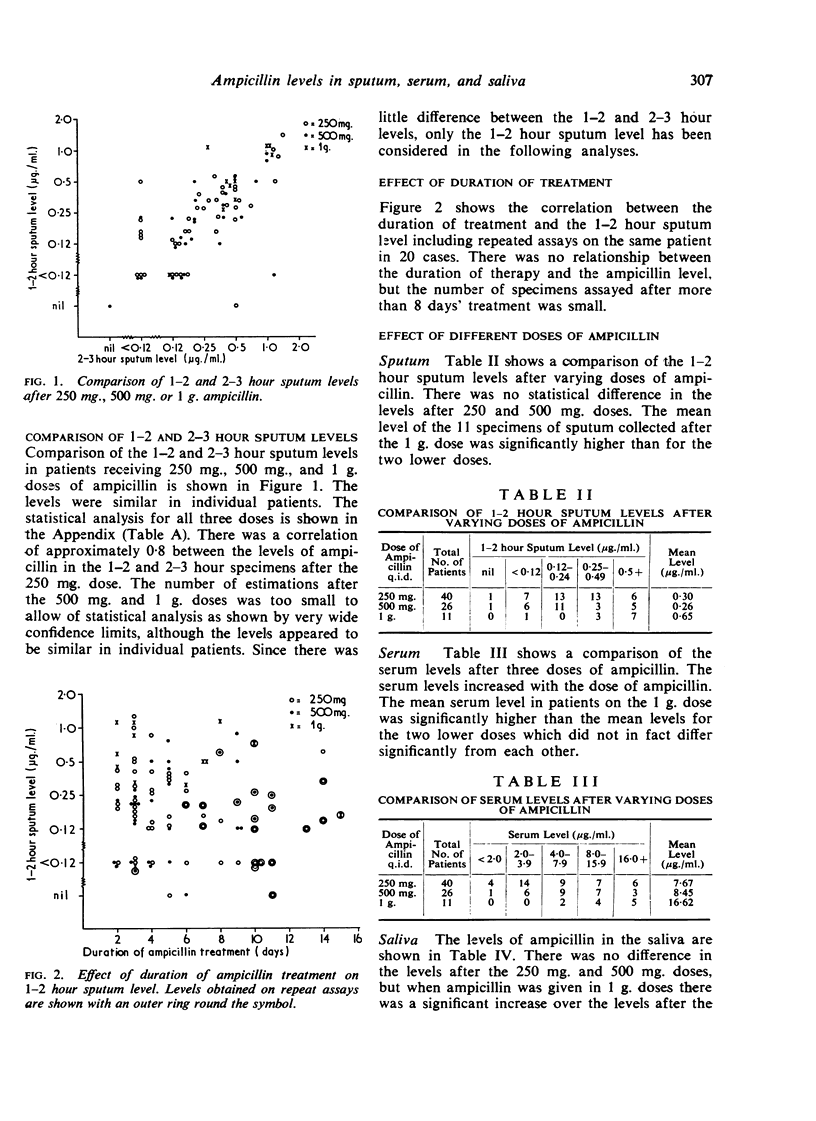
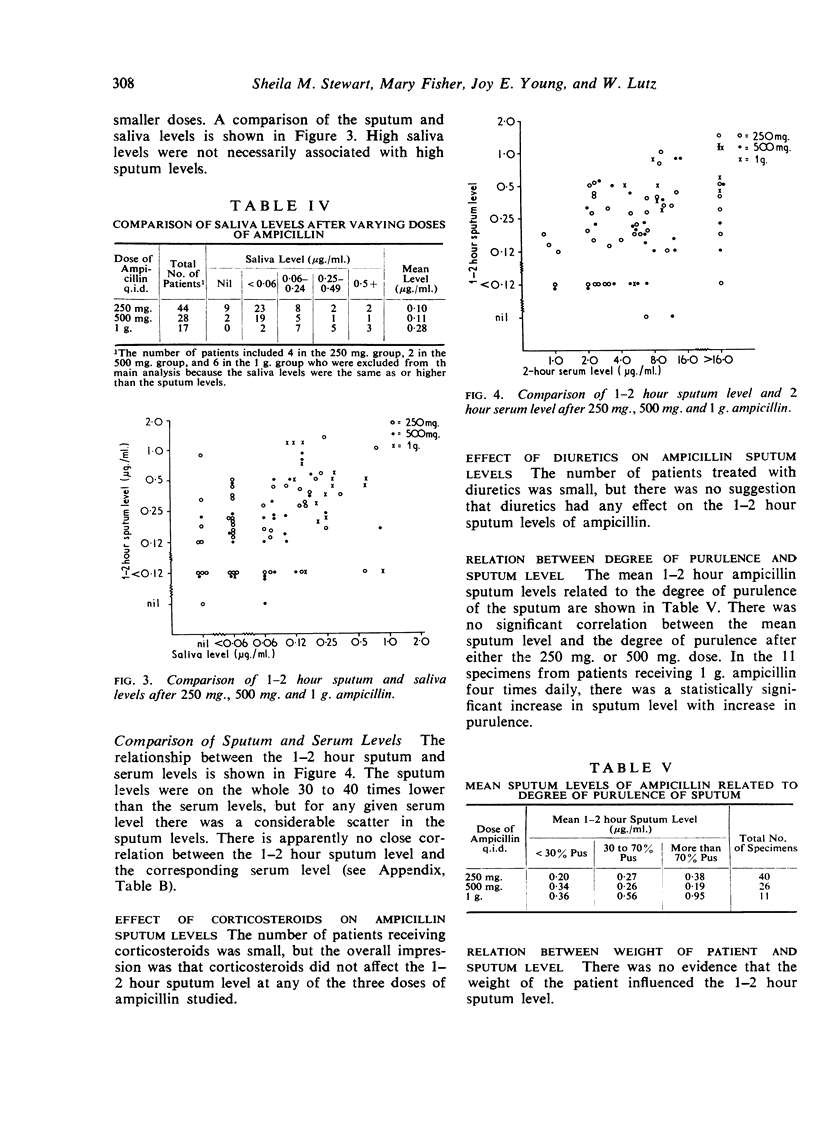
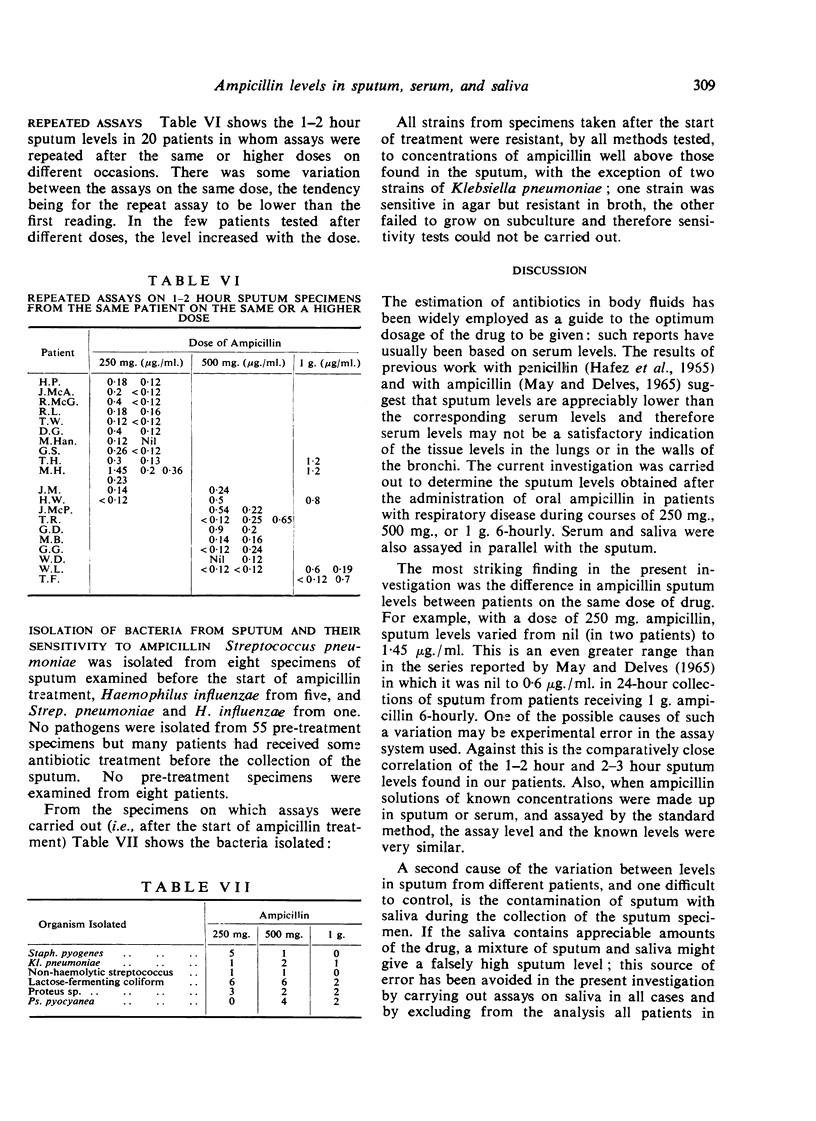
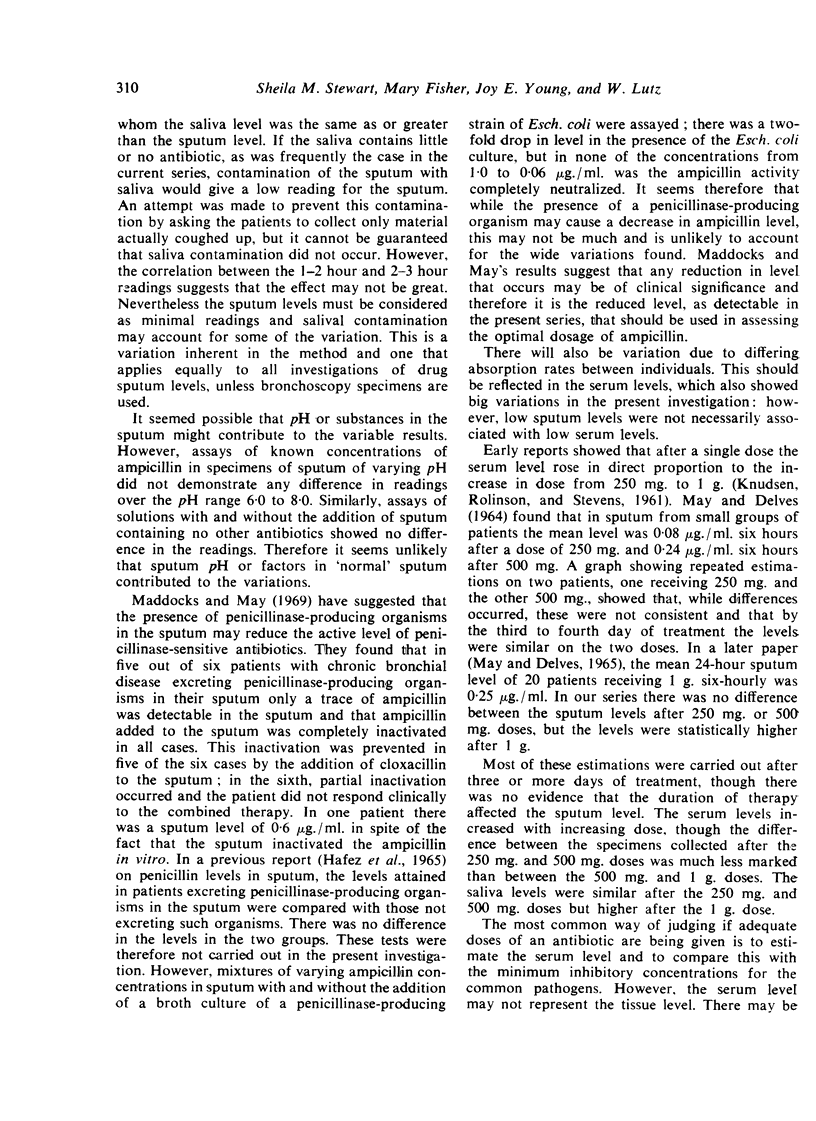
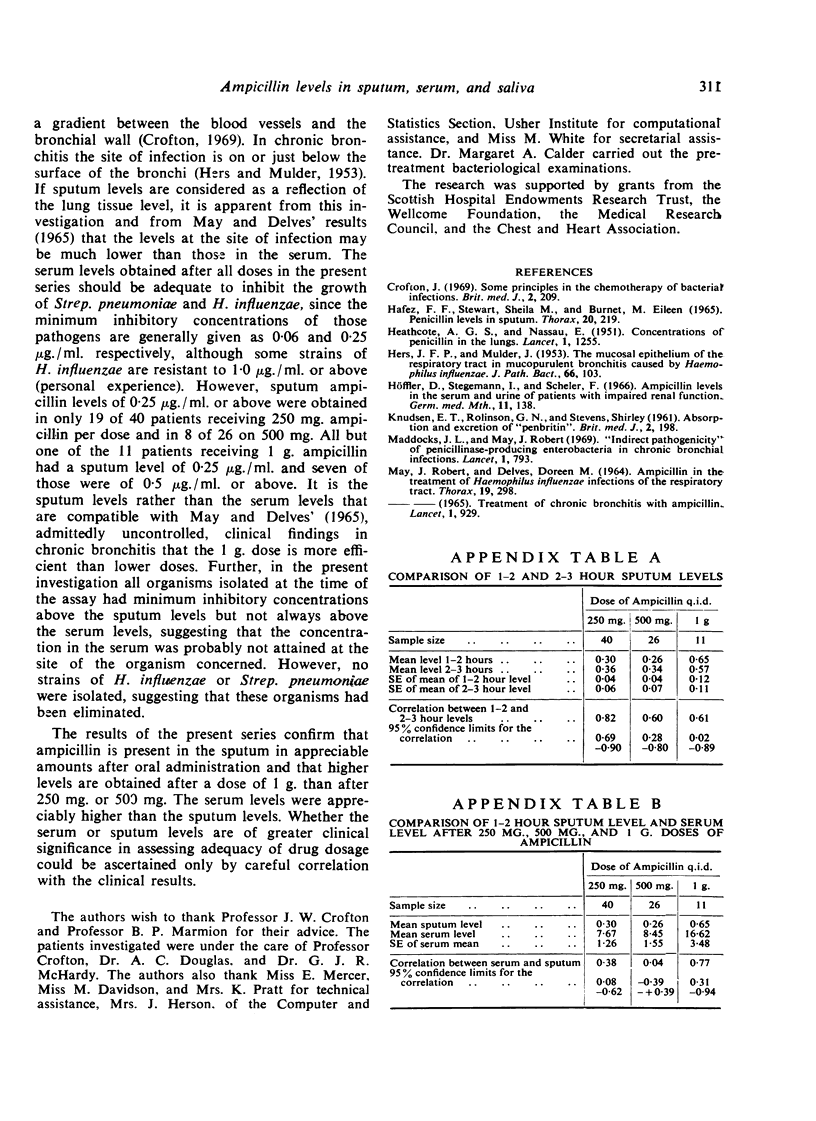
Selected References
These references are in PubMed. This may not be the complete list of references from this article.
- Crofton J. Some principles in the chemotherapy of bacterial infections. II. Br Med J. 1969 Apr 26;2(5651):209–212. doi: 10.1136/bmj.2.5651.209. [DOI] [PMC free article] [PubMed] [Google Scholar]
- HAFEZ F. F., STEWART S. M., BURNET M. E. PENICILLIN LEVELS IN SPUTUM. Thorax. 1965 May;20:219–225. doi: 10.1136/thx.20.3.219. [DOI] [PMC free article] [PubMed] [Google Scholar]
- HEATHCOTE A. G. S., NASSAU E. Concentration of penicillin in the lungs. Effects of two penicillin esters in chronic pulmonary infections. Lancet. 1951 Jun 9;1(6667):1255–1257. doi: 10.1016/s0140-6736(51)92756-0. [DOI] [PubMed] [Google Scholar]
- HERS J. F., MULDER J. The mucosal epithelium of the respiratory tract in muco-purulent bronchitis caused by Haemophilus influenzae. J Pathol Bacteriol. 1953 Jul;66(1):103–108. doi: 10.1002/path.1700660114. [DOI] [PubMed] [Google Scholar]
- Höffler D., Stegemann I., Scheler F. Ampicillin levels in the serum and urine of patients with impaired renal function. Ger Med Mon. 1966 Apr;11(4):138–142. [PubMed] [Google Scholar]
- KNUDSEN E. T., ROLINSON G. N., STEVENS S. Absorption and excretion of "Penbritin". Br Med J. 1961 Jul 22;2(5246):198–200. doi: 10.1136/bmj.2.5246.198. [DOI] [PMC free article] [PubMed] [Google Scholar]
- MAY J. R., DELVES D. M. AMPICILLIN IN THE TREATMENT OF HAEMOPHILUS INFLUENZAE INFECTIONS OF THE RESPIRATORY TRACT. Thorax. 1964 Jul;19:298–305. doi: 10.1136/thx.19.4.298. [DOI] [PMC free article] [PubMed] [Google Scholar]
- Maddocks J. L., May J. R. "Indirect pathogenicity" of penicillinase-producing enterobacteria in chronic bronchial infections. Lancet. 1969 Apr 19;1(7599):793–795. doi: 10.1016/s0140-6736(69)92063-7. [DOI] [PubMed] [Google Scholar]



